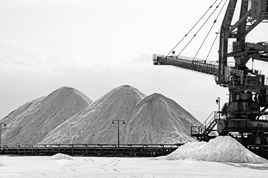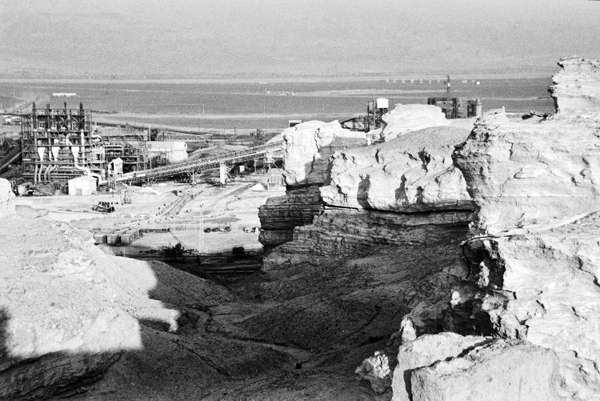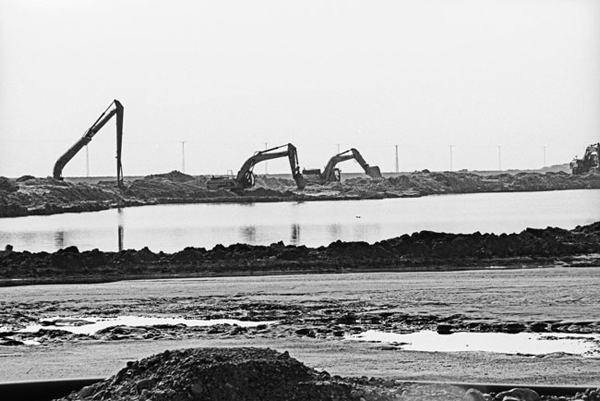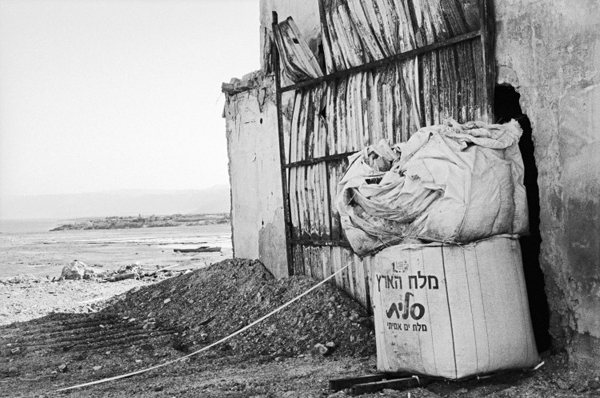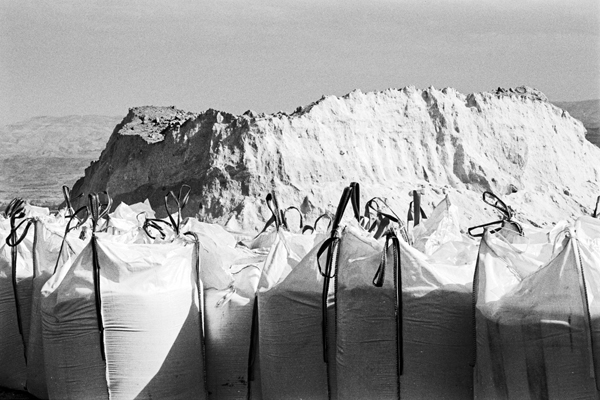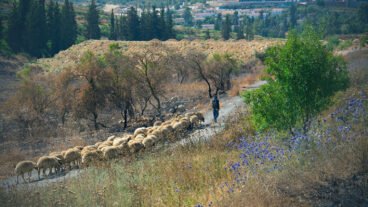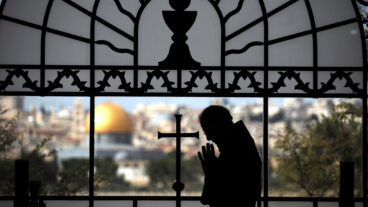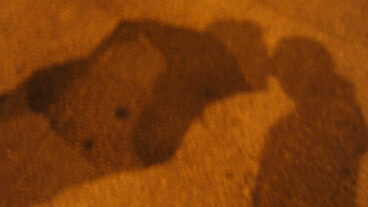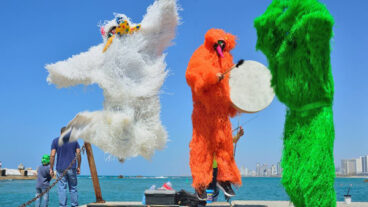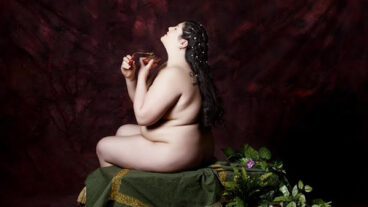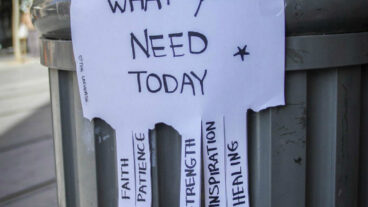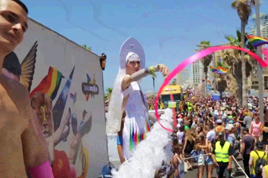Israelis have a complicated, love-hate relationship with Dead Sea Works. On one hand, there is a tradition of national pride in Dead Sea Works which, since its founding 1936, has grown into the world’s seventh largest producer and supplier of potash products, serving customers in over 60 countries.
On the other hand, the mineral extraction activities of both Israel’s Dead Sea Works and Jordan’s Arab Potash Company have harmed the environmental stability of the region. According to Friends of the Earth Middle East (FOEME), these industries are responsible for damage that includes 30-40% of the total evaporation of Dead Sea waters, impacting the surrounding landscape through excavation and disposal of unwanted minerals, and affecting air quality in the region.
FOEME states, “These industrial complexes, boiler and dryer stacks, and extensive mining in the region have also succeeded in causing major alterations to the landscape scenery and breaking up the natural skyline”.
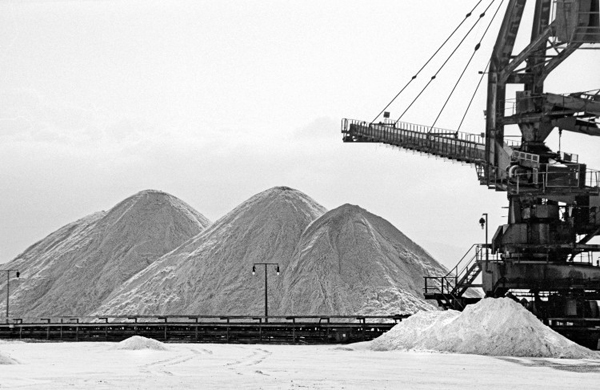
Those “major alterations” and the Dead Sea Works factory are the subject of Elisheva Shaked’s series of photographs, Salt of the Earth, now on exhibit at the Jerusalem Artists House.
According to curator Eyal Perry, Shaked employs classic black and white photographic tradition –“glaring Mediterranean light, a texture of salt and sunburnt metal”– to examine “a complex relationship between primeval nature and a landscape scarred by human hands”.
“From the photographer’s viewpoint, photographic liberty is taken away from her as well, by fences and security systems, which prevent the scenery from yielding to her easily”.
“Israeli society’s stance on the state of the Dead Sea is complex. There is a general feeling that not enough is being done to protect its landscape and identity”.
A lawyer by trade, dealing in planning and construction law, Shaked entered the realm of photography several years ago with an interest in capturing images of the changes wrought by humans on nature.
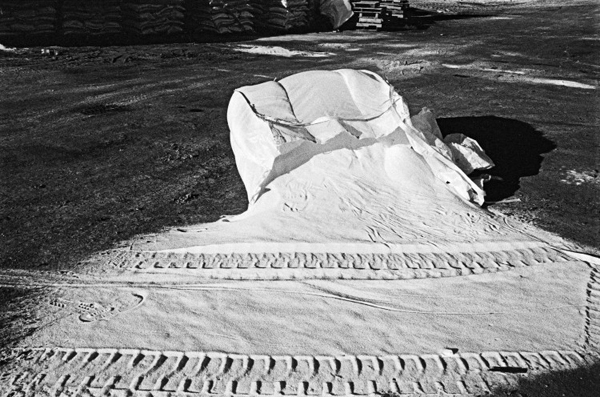
She experienced this change in an all to real way while photographing Dead Sea Works when a sinkhole opened up underneath her and she was swallowed by mud up to her neck. In an interview (in Hebrew) with culture website Saloona, Shaked said, “These [adventures] deepened and ‘salted’ the experience but at the same time [raised] the need to get back to my ‘sweet’ business suit and do some paperwork”.
Salt of the Earth runs through February 14, 2015 at the Jerusalem Artists House. For more information, visit their website.




